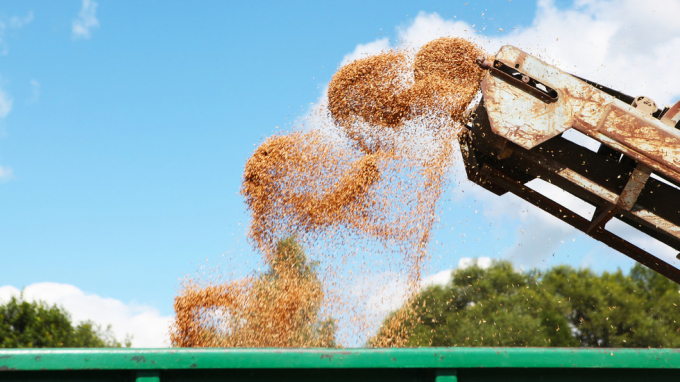June 21, 2025 | 02:39 GMT +7
June 21, 2025 | 02:39 GMT +7
Hotline: 0913.378.918
June 21, 2025 | 02:39 GMT +7
Hotline: 0913.378.918

© Getty Images / Natallia Saksonova
According to the data, Russia sold 1.13 million tons of grain during the first two weeks of the current month, including 1.09 million tons of wheat. In May, Russian farmers exported 900,000 tons of wheat.
The consultancy expects June grain exports to total 2.7 million tons, including 2.4 million tons of wheat. That will beat the previous record of 2.15 million tons fixed in June 2018, according to the head of SovEcon, Andrey Sizov.
June shipments will top the total sales of Russian grain recorded in the three previous months, said Igor Pavensky, the head of the Rusagrotrans analytical center, as quoted by Russian business daily Kommersant.
The uptick reportedly comes as a result of the latest reduction of tax on wheat exports. Moscow introduced a permanent floating tax instead of the previous duty of €50 per ton.
The floating tax was imposed on wheat, corn and barley, and involves a mechanism by which sellers are required to register their export contracts on the Moscow Exchange. The new scheme reportedly minimizes the negative impact of price fluctuations seen in the global markets on the Russian agricultural sector and consumer prices.
The measure came into effect on June 2 with a starting tax rate of $28.10 per ton. By June 23, it will be gradually raised to $38.10 per ton.
According to the Russian Ministry of Agriculture, the country has exported 46 million tons of grain, including 35.5 million tons of wheat this year. The data doesn’t cover shipments to countries of the Eurasian Economic Union (EAEU).
(RT.com)

(VAN) Poultry production in Poland, which has only started recovering from devastating bird flu outbreaks earlier this year, has been hit by a series of outbreaks of Newcastle disease, with the veterinary situation deteriorating rapidly.

(VAN) Extensive licensing requirements raise concerns about intellectual property theft.

(VAN) As of Friday, a salmonella outbreak linked to a California egg producer had sickened at least 79 people. Of the infected people, 21 hospitalizations were reported, U.S. health officials said.

(VAN) With the war ongoing, many Ukrainian farmers and rural farming families face limited access to their land due to mines and lack the financial resources to purchase needed agricultural inputs.

(VAN) Vikas Rambal has quietly built a $5 billion business empire in manufacturing, property and solar, and catapulted onto the Rich List.

(VAN) Available cropland now at less than five percent, according to latest geospatial assessment from FAO and UNOSAT.

(VAN) Alt Carbon has raised $12 million in a seed round as it plans to scale its carbon dioxide removal work in the South Asian nation.